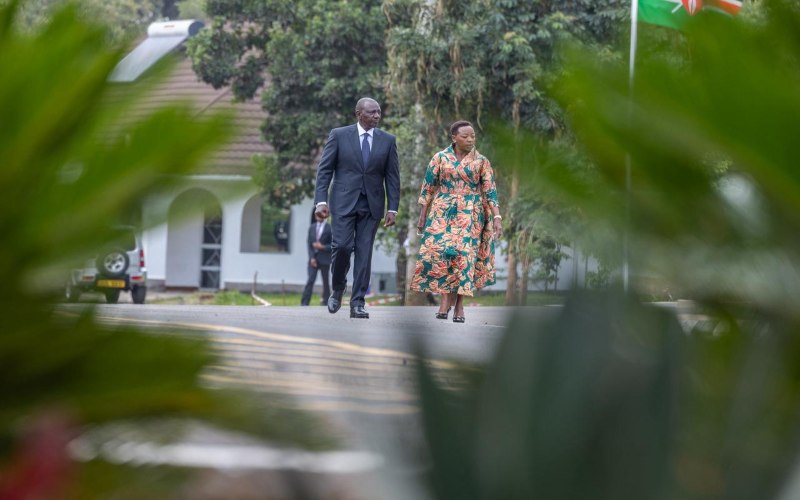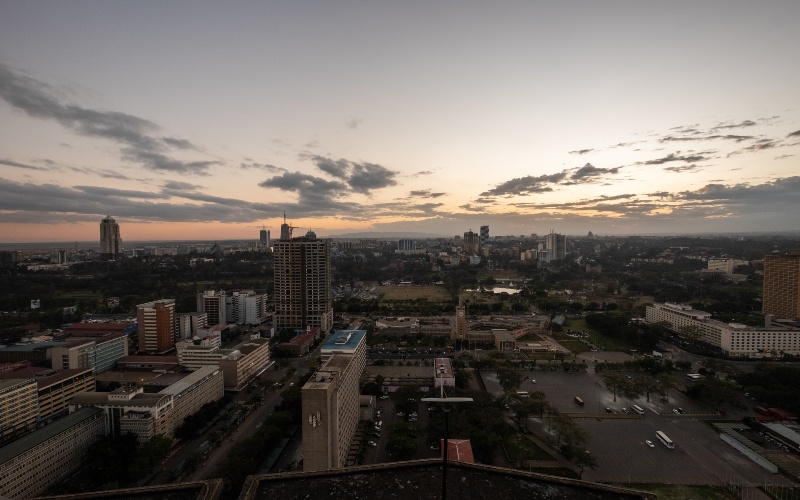From fear to strength: One woman’s triumph over breast cancer woes
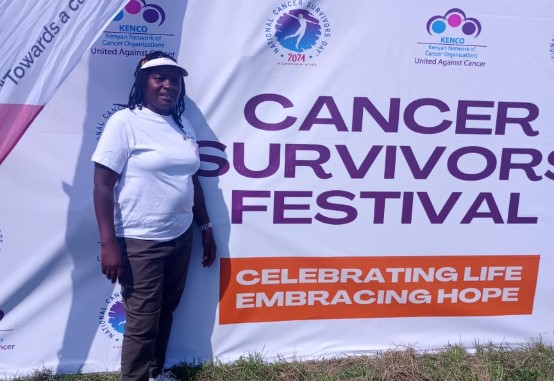
The fear of dying consumed Wambo, leading her to withdraw from everyone around her.
When Eunice Wambua, 48, received her cancer diagnosis, a wave of fear washed over her, instinctively tying her fate to the idea of death. It felt as if her entire world had shattered. In that moment, Wambua faced not only the daunting challenge of her illness but also the crushing weight of abandonment, feeling utterly alone in her darkest hour.
Her husband, the one person she believed would stand by her, chose to walk away. He dismissed her struggle as a waste of resources, a decision that cut her deeply.
More To Read
- Ruto announces increase in cancer treatment cover to Sh800,000 under SHA from December 1, 2025
- Study shows women under 50 face higher risk of colon growths from ultra-processed foods
- Study reveals why colorectal cancer resists immunotherapy
- Over 100 facilities accredited by SHA to provide cancer care after protests
- Hormonal contraceptives linked to higher breast cancer risk, study finds
- Kenya wins bid to host 2027 World Cancer Leaders’ Summit
"My husband watched his mother battle cervical cancer. Despite all the resources poured into her treatment, she ultimately lost her fight. When he found out I had breast cancer, he couldn't handle it and left me and our children. It was like losing everything all over again."
The first time Wambua, a mother of five from Tassia, felt a lump in her breast was in 2015. After an ultrasound, the doctor reassured her that there was nothing to worry about, and she relaxed, believing she was healthy. But as the pain intensified a year later, she sought a second opinion from a different hospital, where the possibility of cancer was suggested, and a biopsy was recommended.
"I was told to go home, think about it, and return for the biopsy. I had to wait for four weeks before I was given the devastating news. I had cancer."
She kept her results to herself, overwhelmed by the little she knew about cancer.
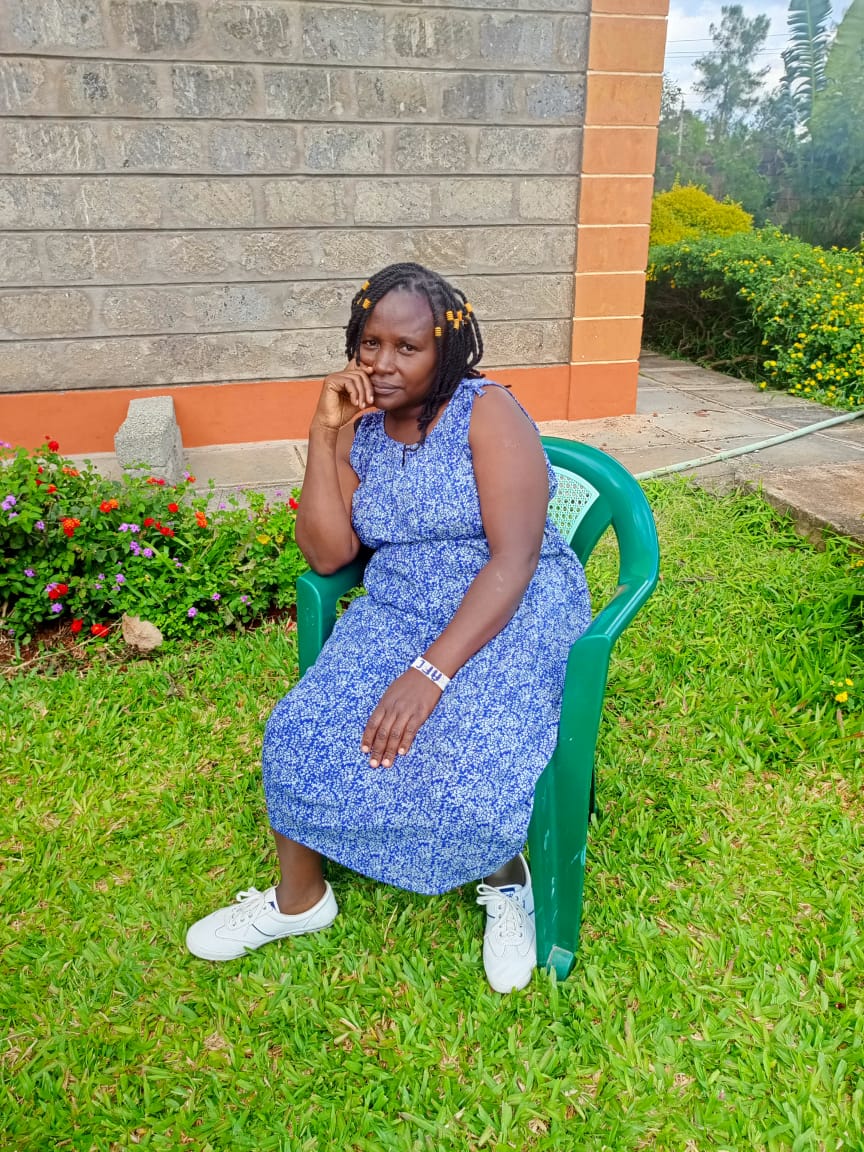 During her surgery, Wambua hadn't fully comprehended that losing just the lump would mean losing her entire breast. (Photo: Handout)
During her surgery, Wambua hadn't fully comprehended that losing just the lump would mean losing her entire breast. (Photo: Handout)
The fear of dying consumed her, leading her to withdraw from everyone around her. She visited five oncologists, still in denial, but the last one urged her to start treatment, which involved the prospect of losing her breast — something she dreaded deeply.
When Wambo finally gathered the courage to sit down with her husband, she held onto a flicker of hope that he might reconsider his stance. But as she shared her decision about pursuing treatment, his response shattered that hope. He coldly told her to pack her bags and go home, urging her to "die in peace", and made it clear that he wouldn't spend a single penny on her treatment.
Financial burden
"For a moment, I hesitated, the weight of uncertainty crashing down on me. I couldn't shake the thoughts racing through my mind. How would we manage if I went through with this treatment? What if I spent all my savings and still didn't survive? The worry about the financial burden felt suffocating.
“I thought about my children—how would they cope if I wasn't there? The idea of leaving them to face the world without me was too much to bear."
Amidst her despair, the only glimmer of hope came from a colleague who encouraged her, reminding her that cancer, when detected early, is treatable and that many people live long lives after diagnosis. Although Wambo felt reluctant and in denial, she eventually accepted the idea of treatment.
During her surgery, she hadn't fully comprehended that losing just the lump would mean losing her entire breast. When her husband saw her after the surgery, unable to bear the reality of her changed body, he packed his bags and left. That was the last time she ever saw him.
Left with children, mounting bills, and an illness slowly draining her, Wambua often found herself accompanied by her young six-year-old son to the chemotherapy clinic. At times, she couldn't even manage to cook, feeling completely overwhelmed without anyone to care for her.
The combination of radiotherapy, chemotherapy, and an accident, ultimately led to her losing her job.
"I'm still on medication; some treatments require you to stay on them for ten years. I haven't even gone for a check-up in the last two years," she admitted.
Living with one breast brought its own challenges. The stigma and whispers from people made her journey even harder. During her treatment, Wambo faced further complications that resulted in losing her uterus and part of her cervix.
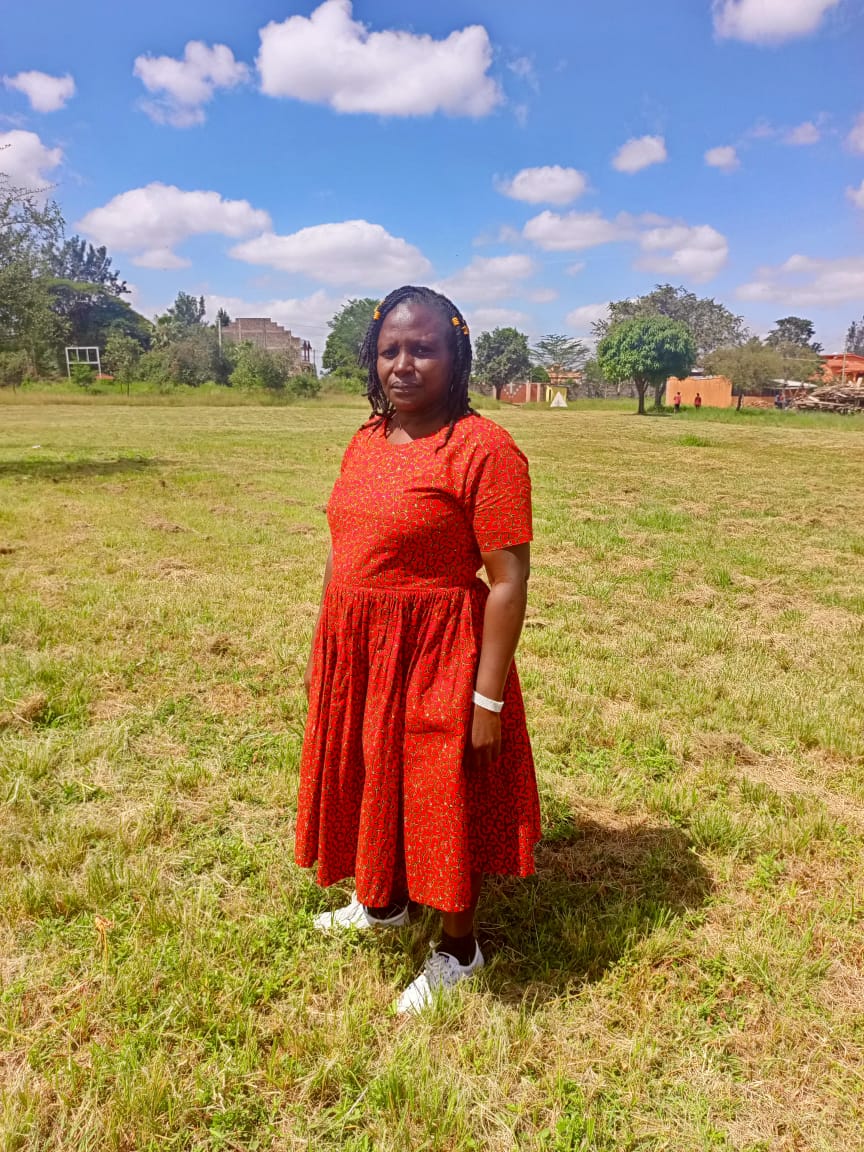 Without any counselling or support group, each day Wambua felt like she was slipping closer to despair. (Photo: Handout)
Without any counselling or support group, each day Wambua felt like she was slipping closer to despair. (Photo: Handout)
Incredibly tough journey
"Throughout this comprehensive treatment, I had to start preparing my children for the possibility of my death. It was an incredibly tough journey. When I was going through my treatment, I organised all the documents for my children, just in case I didn't make it."
Supporting her children became a daily struggle, and she found herself tirelessly searching for ways to provide for them. Without any counselling or support group, each day she felt like she was slipping closer to despair.
All that changed when she discovered Kilele, an organisation dedicated to raising awareness about cancer. There, she found a community that understood her journey, and for the first time, she felt a sense of belonging.
"When I was going through treatment, I felt incredibly lonely, but Kilele helped me realise that I wasn't alone in my journey. Thanks to their support, I've been trained as a counsellor and now I want to share that message with others facing cancer—that they are not alone," says Wambo.
Now six years cancer-free, she dreams of pursuing a degree in counselling, hoping to turn her experience into a career that assists others on their journeys.
Early detection essential
Breast cancer is the most diagnosed cancer in Kenya. According to the World Health Organisation (WHO), breast cancer is a disease characterised by the uncontrolled growth of abnormal breast cells that can form tumours. If left untreated, these tumours can spread throughout the body, becoming life-threatening.
Breast cancer typically begins in the milk ducts or lobules and can often be detected early in its non-invasive form, known as ductal carcinoma in situ (DCIS). However, if the cancer invades surrounding tissue, it can lead to the formation of lumps and may spread to nearby lymph nodes or other organs through metastasis. Metastatic breast cancer poses a significant risk and can be fatal if not addressed promptly. Early detection and treatment are essential for improving patient outcomes.
Who is at risk
The primary risk factor for breast cancer is being female, with about 99 per cent of cases occurring in women.
Risk factors include age, obesity, alcohol consumption, family history, radiation exposure, reproductive history, tobacco use, and hormone therapy after menopause.
Interestingly, around half of breast cancers develop in women without identifiable risk factors aside from gender and age.
Certain genetic mutations, particularly in the BRCA1, BRCA2, and PALB2 genes, significantly increase breast cancer risk. Women with these mutations may consider preventive measures, such as prophylactic surgery or chemoprevention.
Symptoms
Early-stage breast cancer often presents no symptoms, highlighting the importance of early detection. As the disease progresses, symptoms may include:
-A breast lump or thickening, often painless
-Changes in breast size, shape, or appearance
-Dimpling, redness, or pitting of the skin
-Alterations in nipple appearance or discharge, including bloody fluid
Anyone with an abnormal breast lump should seek medical evaluation. While most breast lumps are not cancerous, early treatment is more effective.
Treatment
Breast cancer treatment varies based on cancer type and stage. It often involves a combination of:
Surgery: Removing the tumour (lumpectomy) or the entire breast (mastectomy), sometimes along with lymph nodes to assess spread.
Radiation Therapy: Targeting residual cancer cells in breast tissue and lymph nodes to minimise recurrence risk.
Medications: Including hormonal therapies, chemotherapy, and targeted biological therapies
Breast cancer is the leading cancer in terms of incidence in Kenya, with 6,799 new cases reported in 2020 and an age-standardised incidence rate of 41 per 100,000 people. Preliminary data from the Kenya National Cancer Registry (2014-2019) shows that 7 out of 10 breast cancer diagnoses occur at advanced stages (stage III and IV).
Globally, breast cancer caused 670,000 deaths in 2022. Approximately half of all breast cancers occur in women without specific risk factors, aside from being female and older. It was the most common cancer among women in 157 out of 185 countries in 2022 and is present in every country worldwide. Additionally, approximately 0.5–1 per cent of breast cancer cases occur in men.
Top Stories Today
